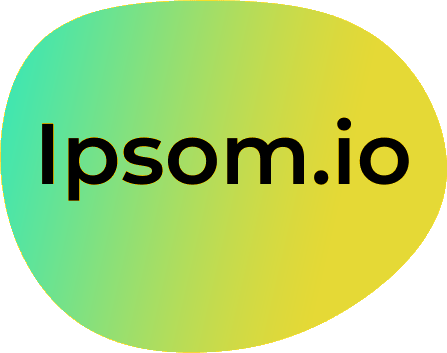Marketing automation has become an essential aspect of eCommerce, enabling businesses to streamline their marketing tasks, enhance customer engagement, and maximize ROI. Software designed for marketing automation allows marketing teams to automate repetitive tasks, freeing up valuable time for strategic planning and creativity.
Key Takeaways
- Definition: eCommerce marketing automation software helps automate marketing tasks across various channels like email, SMS, and social media.
- Key Features: Look for software with robust automation capabilities, integration options, user-friendliness, and advanced analytics.
- Top Tools: Notable solutions include Brevo, HubSpot, Omnisend, ActiveCampaign, Klaviyo, Customer.io, Ortto, and Mailchimp, each with distinct features and pricing.
- Benefits: Automation saves time, reduces errors, improves personalization, enhances cross-channel marketing, and increases marketing efficiency.
- Strategies: Implement strategies like personalized onboarding, cart abandonment reminders, and automated customer journeys for effective marketing automation.
Discover how to enhance your eCommerce strategy with expert help at ipsom.io.
The Importance of eCommerce Marketing Automation
eCommerce marketing automation is a game changer in today's fast-paced digital landscape. It simplifies and streamlines marketing tasks, allowing businesses to focus on growth and engagement instead of repetitive work. The significance of automated marketing extends beyond mere efficiency; it enhances customer engagement and drives operational effectiveness for eCommerce businesses.
Definition of eCommerce Marketing Automation
eCommerce marketing automation refers to tools that help automate tasks across various marketing channels, including:
- Email Campaigns: Automating email sequences for customer engagement and retention.
- Social Media Postings: Scheduling and managing posts for consistent online presence.
- SMS Communications: Sending timely updates and promotions directly to customers' mobile devices.
By leveraging software capabilities, businesses can deliver consistent messages while saving time and effort. Automation is more than just convenience; it serves as a bridge to efficient marketing practices.
Benefits of Marketing Automation
The benefits of marketing automation are manifold:
-
Time Management:
- Reduces repetitive tasks.
- Allows marketing teams to focus on strategy and creative campaigns.
-
Error Reduction:
- Minimizes human errors.
- Leads to more accurate marketing efforts and campaigns.
-
Cost Efficiency:
-
Maximizes marketing budgets with targeted strategies.
-
Personalized messaging becomes more effective, leading to better ROI.
- Cross-Channel Consistency:
- Ensures synchronized marketing messages across all platforms.
- Boosts brand recognition and enhances customer experience.
Embracing eCommerce marketing automation is not just beneficial; it is essential for businesses aiming to thrive in a competitive market.
Criteria for Selecting the Right Marketing Automation Software
When choosing the right marketing automation software, several key criteria should guide your decision. Each criterion plays a vital role in ensuring that the software aligns with your business needs and enhances your marketing efforts effectively.
Automation Capabilities
- Robust Automation Features: Look for software that automates across multiple marketing channels, including:
- SMS
- Digital Ads
- Social Media Platforms
- Holistic Strategy Support: The more channels the software can automate, the better it will serve your overall marketing strategy.
Integrations and Functionality
- Seamless Integration: Ensure compatibility with existing systems such as:
- CRM
- Content Management Platforms
- Workflow Efficiency: The software should reduce complications and facilitate smooth data sharing, ensuring all parts of your marketing operation work together harmoniously.
Price to Value Ratio
- Cost Consideration: Evaluate the price to value ratio, particularly important for small to medium-sized businesses.
- Tier Evaluation: Investigate what features are included at each price tier to ensure that the investment is justified.
Ease of Use
- User-Friendliness: The software should have a minimal learning curve for your marketing team.
- Customer Support: Excellent support can significantly enhance user experience, enabling your team to troubleshoot any issues quickly.
Reporting and Analytics
- Strong Data Analytics Features: Essential for tracking performance effectively.
- Customizable Dashboards: Look for insightful reporting tools that allow you to measure the effectiveness of your marketing campaigns.
- Informed Decision-Making: Good analytics are key to optimizing future strategies and making informed decisions.
Best eCommerce Marketing Automation Software
Choosing the right eCommerce marketing automation software is crucial for your business's success. The market is filled with various options, each offering unique features and pricing structures. Below is an overview of some of the top tools available and their key advantages.
Overview of Top Tools
-
Brevo
- Pros: Affordable pricing, automation across multiple channels, and a free plan for newcomers.
- Cons: Limited scalability for growing businesses.
-
HubSpot
- Pros: Extensive features, strong integrations across platforms, and powerful automation options.
- Cons: High cost; additional expenses may be incurred for premium features.
-
Omnisend
- Pros: Comprehensive free plan tailored for eCommerce, robust automation capabilities.
- Cons: Best suited for small businesses; may lack advanced features for larger enterprises.
-
ActiveCampaign
- Pros: Advanced AI features for enhanced targeting and broad integrations with other services.
- Cons: Some users may find the learning curve steep.
-
Klaviyo
- Pros: Highly user-friendly interface, strong email templates for marketing campaigns.
- Cons: Feature set is limited when compared to other competitors.
-
Customer.io
- Pros: Powerful workflow automation features and extensive customization options for tailored campaigns.
- Cons: Pricing may be higher than basic options.
-
Ortto
- Pros: Excellent user activity tracking and analytics, helpful for understanding customer behavior.
- Cons: Considered expensive by some users, especially small businesses.
-
Mailchimp
- Pros: Well-established platform, seamless integration options, and standard automation features.
- Cons: Can become costly as your business grows.
Pricing Overview
- Brevo: Free plan; paid plans start at $8/month.
- HubSpot: Starting price is $800/month, reflecting its extensive service offering.
- Omnisend: Free plan available; paid plans begin at $16/month.
- ActiveCampaign: Plans start from $15/month.
- Klaviyo: Free plan available; paid options start at $20/month.
- Customer.io: Monthly plans begin at $100.
- Ortto: Starts from $509/month, aimed at larger businesses.
- Mailchimp: Free for up to 500 contacts; paid plans start at $13/month.
Selecting from these tools will depend on your specific business needs, budget, and desired features. Evaluate each option carefully to find the best fit for your eCommerce marketing strategy.
Proven eCommerce Marketing Automation Strategies
Implementing effective eCommerce marketing automation strategies is vital for maximizing customer engagement and driving sales. These strategies streamline various marketing tasks, allowing businesses to focus on growth and innovation.
Key Automation Strategies
-
Personalized Email Onboarding
- Customize welcome email sequences for new subscribers.
- Enhances user engagement and creates a strong first impression.
-
Cart Abandonment Reminders
- Set up automated reminders via email or SMS.
- A gentle nudge can recover valuable lost sales.
-
Automated Price Drop and Inventory Alerts
-
Engage customers with notifications about discounts and restocks.
-
Keeps customers informed, encouraging purchases and boosting sales.
-
Social Media and Search Ad Remarketing
- Utilize targeted ads to retarget previous site visitors.
- Maintains engagement and encourages return visits to complete purchases.
-
Chatbot Automation
- Employ AI-driven chatbots for 24/7 customer support.
- Enhances interaction and provides immediate assistance, improving customer satisfaction.
-
On-site Personalization
-
Tailor content and product recommendations based on user behavior.
-
On-site personalization significantly boosts conversion rates.
-
Customer Re-engagement and Churn Prevention
- Launch campaigns targeting inactive customers.
- Re-engagement strategies can significantly improve retention and generate repeat business.
-
Cross-Channel Customer Journeys
- Create individualized automated journeys across multiple channels.
- Enhances overall customer experience and builds lasting relationships.
By implementing these proven strategies, eCommerce businesses can optimize their marketing efforts, enhance customer connections, and ultimately increase revenue.
Key Factors for Choosing Software
When selecting the right eCommerce marketing automation software, consider several key factors to ensure optimal performance and efficiency:
Supported Channels
- Diverse Range of Channels: Critical for seamless automation across various platforms.
- Channel Types:
- SMS
- Social Media
- Digital Ads
- Enhanced Engagement: Versatility allows you to reach customers where they are most active, boosting engagement and conversion rates.
Key Use Cases
- Identifying Use Cases: Essential to assess automation needs.
- Common Use Cases:
- Email marketing
- Customer re-engagement
- Cart abandonment reminders
- Clear Overview: Understanding your requirements helps you select software that aligns with your business objectives.
Flexibility and Integrations
- Flexibility: Ensure that tools offer adaptability to your needs.
- Robust Integrations: Important for seamless connections with existing systems.
- Integration Types:
- Connecting with CRM systems
- Compatibility with content management platforms
- Pre-built integrations and flexible APIs
- Benefits: Facilitate data sharing, streamline workflows, and enhance marketing strategies.
Choosing the right software based on these factors will significantly improve your automation efforts, streamline your processes, and maximize your marketing ROI.
Conclusion
Implementing eCommerce marketing automation can significantly enhance your business strategy. It streamlines processes, boosts customer engagement, and optimizes marketing efforts. However, successful integration requires careful planning and expert implementation.
Implementation Considerations
Engaging expert developers is essential for setting up advanced tools correctly. They can help ensure that all systems communicate effectively, improving user experience. Additionally, balancing human support with automated services enhances customer care. This balance ensures that customers feel valued while benefiting from the efficiency of automation.
Future Trends
The landscape of automation technology continues to evolve rapidly. Future trends will likely bring more integration capabilities and innovative features. Staying updated with these changes is crucial for maintaining a competitive edge. Regularly revisiting your automation strategies will allow you to adapt and thrive in an ever-changing market.
FAQ
What is eCommerce marketing automation software?
eCommerce marketing automation software helps automate marketing tasks across various channels like email, SMS, and social media. This software streamlines repetitive tasks, improving efficiency and allowing marketers to focus on strategy.
How does marketing automation improve customer engagement?
Marketing automation enhances customer engagement by delivering targeted messages at the right time. It allows personalization of communications, automated follow-ups, and timely reminders that resonate with customers, creating a more engaging experience.
What should I consider when selecting eCommerce marketing automation software?
When selecting software, consider automation capabilities, integrations, ease of use, and reporting features. Evaluate the price to value ratio and look for software that aligns with your specific marketing requirements.
Can marketing automation software integrate with my existing tools?
Most marketing automation software offers seamless integration with popular tools such as CRMs and content management systems. This connectivity is essential for reducing workflow complications and maximizing the efficacy of your marketing efforts.
What are some successful automation strategies for eCommerce?
Successful strategies include personalized email onboarding, cart abandonment reminders, and automated price drop alerts. Implementing cross-channel customer journeys and utilizing retargeting techniques can also enhance engagement and sales.
How can personalization be achieved through automation?
Personalization can be achieved by leveraging customer data to tailor communications and offers. Automated workflows can send customized messages based on user behavior, preferences, and past interactions.
What are the typical costs associated with marketing automation software?
Costs can vary significantly depending on the features and capabilities. Basic plans may start free or at low monthly rates, while more advanced tools can range from $13 to over $800 per month.
How do I measure the effectiveness of my marketing automation efforts?
Measure effectiveness through analytics offered by the software. Key metrics include open rates, click-through rates, conversion rates, and ROI from automated campaigns. Regularly reviewing these metrics will help optimize future marketing strategies.






